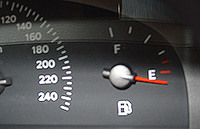Valence Lithium Phosphate Batteries Help MIT Students Convert a Porsche to an Electric Vehicle
AUSTIN, Texas--Valence Technology, Inc. today announces that its lithium phosphate batteries will be used in an MIT student engineering project that converts a 914 Porsche into an electric vehicle. The vehicle will be used as a research and development tool by MIT students to demonstrate the viability of electric powered automobiles, while evaluating where and how far the future of electric vehicle (EV) technology needs to go.
“We are proud to support MIT’s 914 Project and its technical focus to further the awareness and advancement of electric vehicle technology,” said Robert L. Kanode, President and CEO. “The enabling capabilities of Valence’s lithium phosphate batteries, including reliability, safety and long lasting performance, are well suited to the EV market. Using our batteries, the students are better equipped to run extreme tests and measure real-world battery conditions when the car is operating for an extended period of time.”
Valence contributed 18 lithium phosphate rechargeable batteries delivered in a 12-volt standard U-Charge® power system pack complete with monitoring systems to provide increased ease-of-use in managing and maintaining the performance of the power system. During the conversion, students replaced the Porsche’s original engine with an electric motor including 12 batteries, a battery management system, various relays, and a controller that makes all the components work together.
Valence’s large-format lithium phosphate power system provides the student teams with extended run-time for the car during road simulation testing, in addition to superior safety and flexibility over lithium metal oxide chemistries, such as lithium cobalt oxide. The electric vehicle’s battery pack is unlikely to experience thermal runaway under normal use and conditions with Valence’s lithium phosphates as the battery pack features a single cell fail-safe function, shutting off power to degenerative cells for easier cell replacement.
Yang Shao-Horn, an associate professor in MIT’s Department of Mechanical Engineering and her husband, Dr. Quinn Horn, spearheaded the project after purchasing the Porsche from eBay to offer students a hands-on learning experience. The project will also help to provide valuable information for Shao-Horn’s research on advanced batteries at the Electrochemical Energy Laboratory. With help from MIT’s engineering students, her research team will be able to measure the conditions that batteries encounter inside an operating vehicle.



